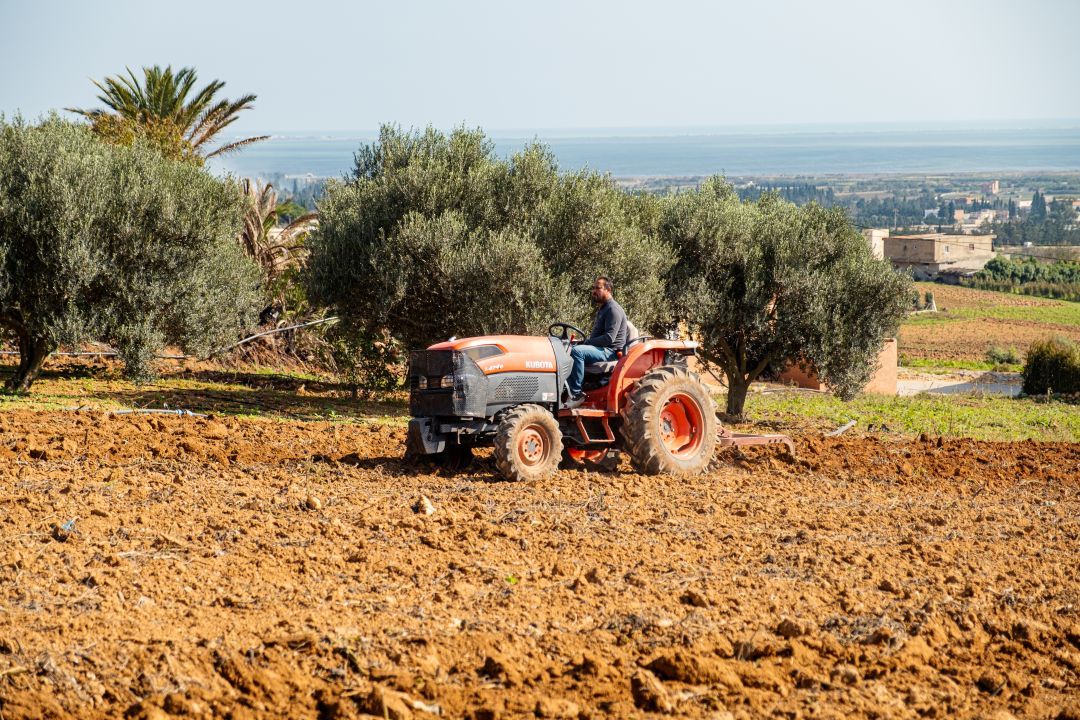Version française ci-dessous
Tunisia has been suffering from severe droughts in the past years. The coast of Ghar El Melh, in the governorate of Bizerte, home to one of the country’s most valuable wetlands, is facing a range of developmental pressures particularly due to climate vulnerability and climate change impacts, negatively affecting the local lagoon but also the livelihoods of the local farming community.
A regional collaboration encompassing local, national and Mediterranean partners came together to provide a customized solution to the above challenges. ACCISI-GEM (Adapting to Climate Change Impacts through Smart Irrigation and WEFE Nexus Approach), an innovative project with a range of targeted interventions, produced significant results at the local and national level, improving the livelihoods of local farmers.
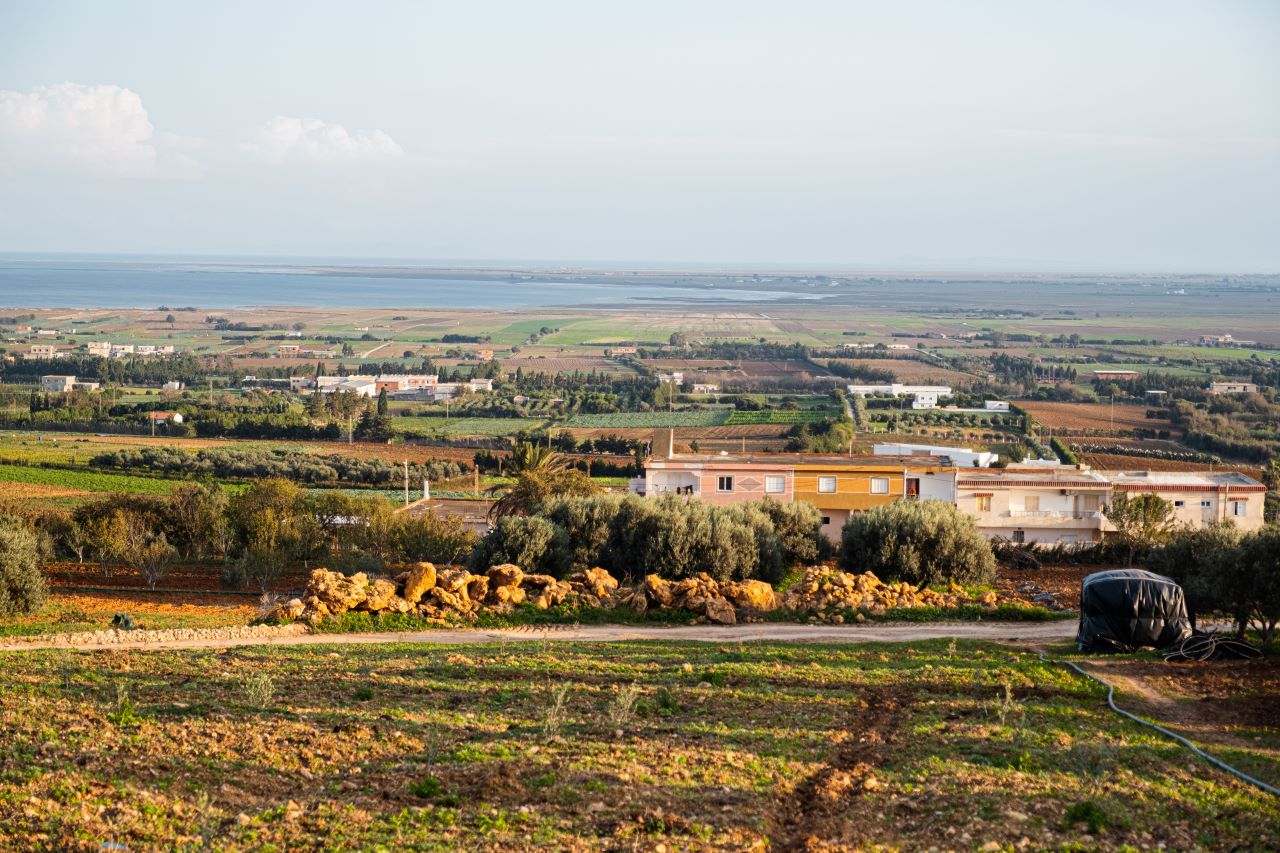
ACCISI-GEM, was implemented from late 2023 to February 2025 by the Global Water Partnership – Mediterranean, under the leadership of the General Directorate of Rural Engineering and Water Exploitation (DG-GREE) within the Tunisian Ministry of Agriculture, Hydraulic Resources and Fisheries, in partnership with the National Institute of Agronomy of Tunisia (INAT) and in collaboration with the Regional Commissary for Agricultural Development CRDA Bizerte.
Financially supported by the Office of the Deputy Prime Minister and Ministry for Foreign Affairs and Tourism Malta with co-financing from the GEF UNEP/MAP MedProgramme, the project illustrates the potential of Mediterranean collaboration. Smart irrigation technology was deployed in specific plots in Ghar El Melh, following the Water-Energy-Food-Ecosystems (WEFE) Nexus approach. A real-time monitoring system for soil and crop conditions and water requirements was installed, providing farmers with precise, data-driven advice on when and how much water to apply to their crops. Renewable energy through solar panels was used for water pumping, further reducing the energy footprint. In the framework of the project, farmers received training on how to operate and maintain the equipment, to ensure sustainability under local capacities.
The system was installed in 4 farms growing different crops. On average, farmers were able to increase the amount of agricultural production by 27%, using slightly less water (a 3% reduction).
At the national level, a multi-stakeholder Policy Dialogue was organised aiming to strengthen cooperation among government agencies, agricultural associations, technology providers, and relevant NGOs for the wider adoption of sustainable agricultural practices along the WEFE Nexus approach. The project developed a common vision and framework among key stakeholders for the wider adoption of sustainable agricultural practices using the WEFE Nexus approach in the country; formulated realistic policy recommendations and built a collaborative Action Plan to scale up smart irrigation technologies and renewable energy solutions; discussed financial incentives and opportunities for farmers along with public policies for replication in other regions in Tunisia, and strengthened the institutional support for the application of smart irrigation and the adoption of the WEFE Nexus approach in agriculture.
The policy recommendations were developed through a desk-study analysis, semi-structured interviews with key stakeholders and a series of consultation workshops with a core team comprising representatives from key institutions such as the Regional Commissariat for Agricultural Development CRDA Bizerte, the Agricultural Investment Promotion Agency (APIA Bizerte), the National Institution of Agronomy of Tunisia (INAT), the Territorial Unit of extension services (CTV Ghar Elmelh), the Local Union of Agriculture and Fisheries (ULAP Ghar Elmelh), the Agricultural Extension and Training Agency (AVFA), IrWise startup, agricultural consultants, and ENDA TAMWEEL as financial organizations.
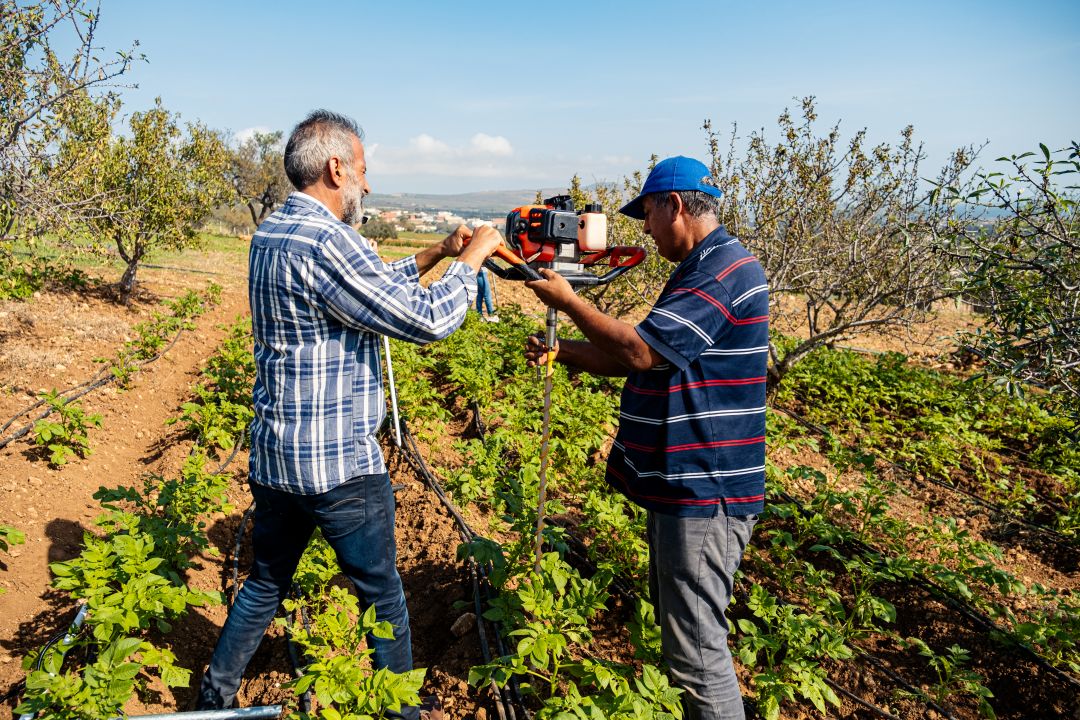
Key policy recommendations included:
- The adoption of a national WEFE policy and the establishment of a formal WEFE Nexus monitoring committee to ensure the steering and effective implementation of the coordination and collaboration model.
- The creation of a dedicated national fund to support climate-resilient agricultural practices.
- Financial incentives for the acquisition of smart irrigation systems and solar energy solutions.
- Capacity-building initiatives for institutional actors to enhance their understanding and implementation of the WEFE Nexus approach.
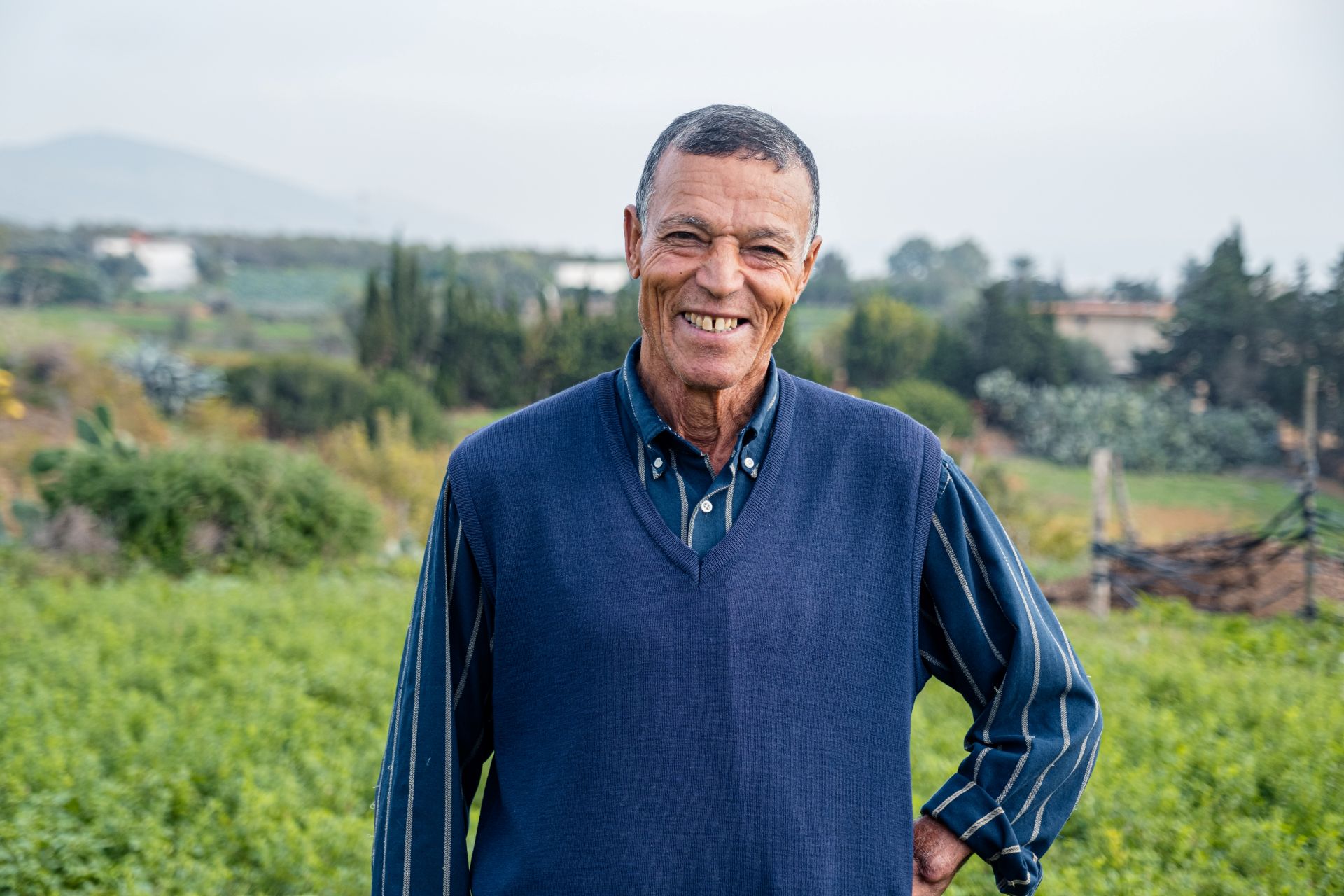
The ACCISI-GEM project built on the findings of the ‘Conservation and Sustainable Development of Coastal Wetlands with High Ecological Value’ GEMWET project (2020-2021), which aimed to assist economic, socio-cultural and ecological development in the Ghar El Melh. GEMWET successfully enhanced water, energy and food security in the Ghar El Melh wetland area in North Tunisia, protecting its valuable ecosystems and their functions from intense environmental pressures and enhancing community resilience to climate change, in line with the government’s efforts towards sustainable development.
Building further on the successful application of WEFE Nexus solutions in Ghar El Melh through the GEMWET and ACCISI-GEM projects, GWP-Med is currently exploring options with institutional partners for replicating and upscaling the methodology and lessons learnt in other governorates in Tunisia.
Adapting to Climate Change Impacts through Smart Irrigation in Ghar El Melh wetland area, Tunisia (ΑCCISI GEM) Project was launched in late 2023, implemented in the Governorate of Bizerte, by the Global Water Partnership - Mediterranean under the leadership of the General Directorate of Rural Engineering and Water Exploitation (DG-GREE) within the Tunisian Ministry of Agriculture, Hydraulic Resources and Fisheries, in partnership with the National Institute of Agronomy of Tunisia and in collaboration with the Regional Commissary for Agricultural Development CRDA Bizerte. It is financially supported by the Office of the Deputy Prime Minister and Ministry for Foreign Affairs and Tourism, Malta and the GEF UNEP/MAP MedProgramme .
Le projet ACCISI-GEM a marqué un succès impressionnant pour la conservation des ressources naturelles et l'agriculture durable dans le nord de la Tunisie, qui souffre de stress hydrique, en aidant les agriculteurs à augmenter leur production agricole de 27%, tout en réduisant l'utilisation de l'eau d'irrigation de 3%.
La Tunisie a souffert de graves sécheresses ces dernières années. La côte de Ghar El Melh, dans le gouvernorat de Bizerte, qui abrite l'une des zones humides les plus précieuses du pays, est confrontée à une série de pressions liées au développement, notamment en raison de la vulnérabilité climatique et des effets du changement climatique, ce qui a des répercussions négatives sur la lagune locale, mais aussi sur les moyens de subsistance de la communauté agricole locale.
Une collaboration régionale englobant des partenaires locaux, nationaux et méditerranéens s'est mise en place pour fournir une solution personnalisée aux défis susmentionnés. ACCISI-GEM (Adapting to Climate Change Impacts through Smart Irrigation and WEFE Nexus Approach), un projet innovant comportant une série d'interventions ciblées, a produit des résultats significatifs aux niveaux local et national, améliorant les moyens de subsistance des agriculteurs locaux.
ACCISI-GEM, a été mis en œuvre de fin 2023 à février 2025 par le Partenariat mondial pour l'eau - Méditerranée, sous la direction de la Direction générale du génie rural et de l'exploitation de l'eau (DG-GREE) au sein du ministère tunisien de l'Agriculture, des Ressources hydrauliques et de la Pêche, en partenariat avec l'Institut National Agronomique de Tunisie (INAT) et en collaboration avec le Commissariat régional au développement agricole CRDA Bizerte.
Soutenu financièrement par le bureau du vice-premier ministre et le ministère des affaires étrangères et du tourisme de Malte, avec un cofinancement du programme Med du FEM PNUE/PAM, le projet illustre le potentiel de la collaboration méditerranéenne. Une technologie d'irrigation intelligente a été déployée sur des parcelles spécifiques à Ghar El Melh, selon l'approche du Nexus eau-énergie-alimentation-écosystèmes (WEFE). Un système de surveillance en temps réel de l'état des sols et des cultures et des besoins en eau a été installé, fournissant aux agriculteurs des conseils précis, fondés sur des données, sur le moment et la quantité d'eau à appliquer à leurs cultures. L'énergie renouvelable produite par les panneaux solaires a été utilisée pour le pompage de l'eau, ce qui a permis de réduire encore l'empreinte énergétique. Dans le cadre du projet, les agriculteurs ont reçu une formation sur le fonctionnement et l'entretien de l'équipement, afin d'assurer la durabilité dans le cadre des capacités locales.
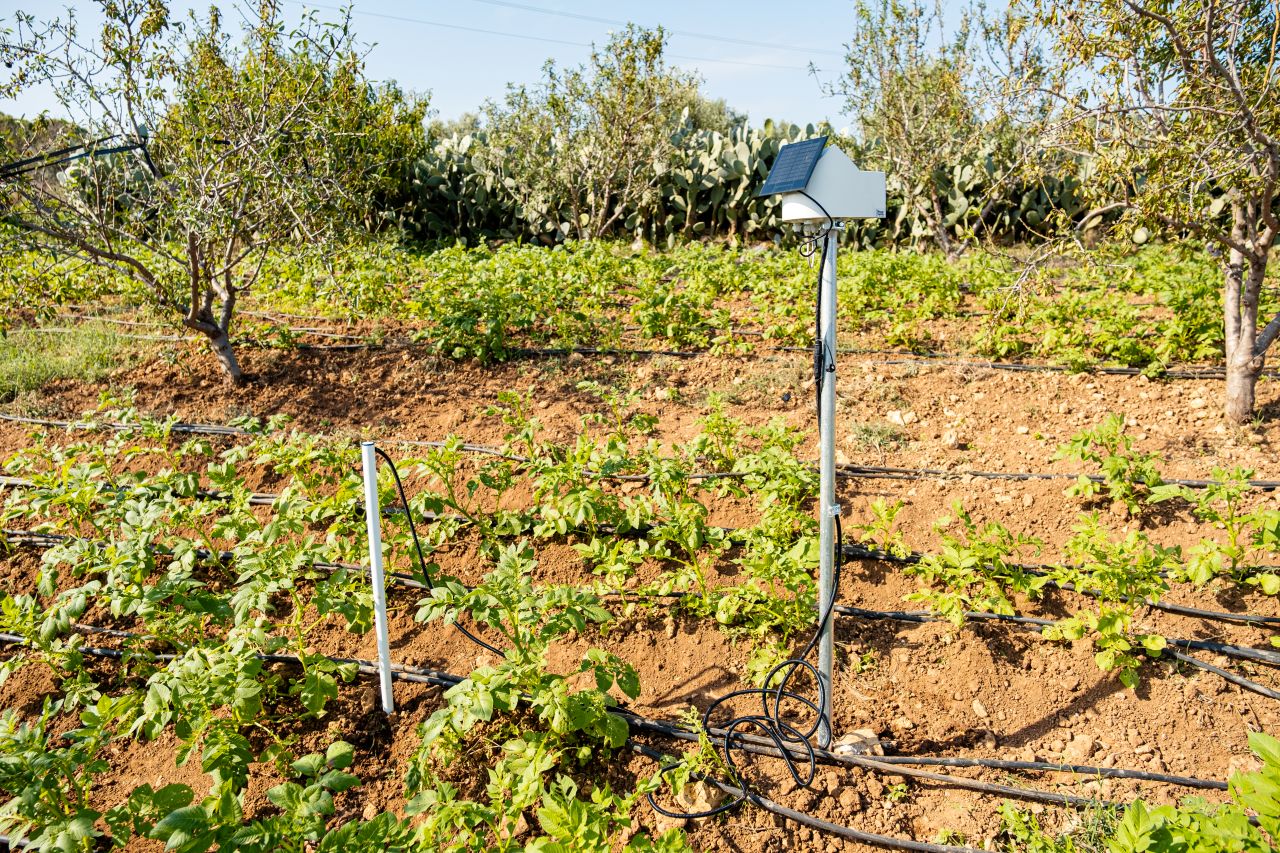
Le système a été installé dans quatre exploitations agricoles pratiquant différentes cultures. En moyenne, les agriculteurs ont pu augmenter leur production agricole de 27 %, en utilisant un peu moins d'eau (une réduction de 3 %).
Les principales recommandations politiques sont les suivantes :
- L'adoption d'une politique nationale du WEFE et la mise en place d'un comité officiel de suivi du WEFE Nexus pour assurer le pilotage et la mise en œuvre efficace du modèle de coordination et de collaboration.
- La création d'un fonds national dédié pour soutenir les pratiques agricoles résilientes au climat.
- Des incitations financières pour l'acquisition de systèmes d'irrigation intelligents et de solutions d'énergie solaire.
- Des initiatives de renforcement des capacités pour les acteurs institutionnels afin d'améliorer leur compréhension et leur mise en œuvre de l'approche Nexus du WEFE.
Le projet ACCISI-GEM s'est appuyé sur les conclusions du projet GEMWET « Conservation et développement durable des zones humides côtières à haute valeur écologique » (2020-2021), qui visait à soutenir le développement économique, socioculturel et écologique dans le Ghar El Melh. GEMWET a réussi à améliorer la sécurité de l'eau, de l'énergie et de l'alimentation dans la zone humide de Ghar El Melh, dans le nord de la Tunisie, en protégeant ses précieux écosystèmes et leurs fonctions contre les pressions environnementales intenses et en renforçant la résilience de la communauté au changement climatique, conformément aux efforts déployés par le gouvernement en faveur du développement durable.
S'appuyant sur l'application réussie des solutions WEFE Nexus à Ghar El Melh à travers les projets GEMWET et ACCISI-GEM, GWP-Med explore actuellement les options avec les partenaires institutionnels pour reproduire et étendre la méthodologie et les leçons apprises dans d'autres gouvernorats en Tunisie.
Adaptation aux impacts du changement climatique par l'irrigation intelligente dans la zone humide de Ghar El Melh, Tunisie (ΑCCISI GEM) Le projet a été lancé fin 2023, mis en œuvre dans le gouvernorat de Bizerte, par le Partenariat mondial de l'eau - Méditerranée sous la direction de la Direction générale du génie rural et de l'exploitation de l'eau (DG-GREE) au sein du ministère tunisien de l'Agriculture, des Ressources Hydrauliques et de la Pêche, en partenariat avec l'Institut National d'Agronomie de Tunisie et en collaboration avec le Commissariat Régional au Développement Agricole CRDA Bizerte. Il est soutenu financièrement par le Bureau du Vice-Premier Ministre et le Ministère des Affaires Etrangères et du Tourisme, Malte et le Programme Med du GEF UNEP/MAP.
